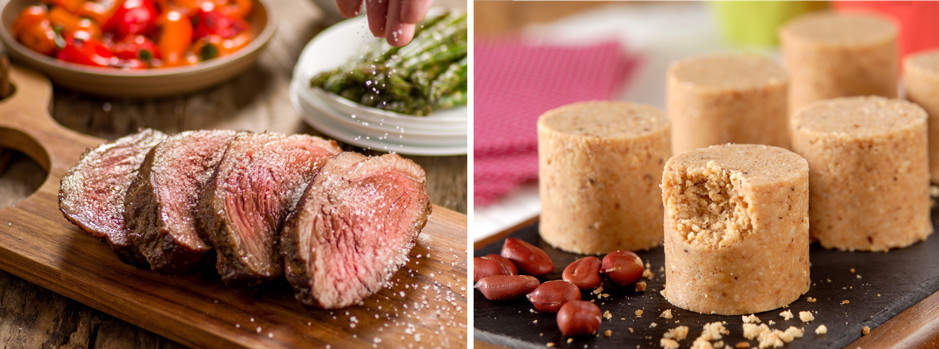Some links on this site are affiliate links, which means we may earn a small commission if you make a purchase using the link. This commission comes at no additional cost to you and helps to support the maintenance and development of this website.
It’s no secret to anybody that Brazilian cuisine is absolutely incredible, and Brazilian food has some of the best flavors you’ll ever taste. From salty foods like the traditional feijoada, moqueca, and tutu, all the way to sweets like brigadeiro and paçoca, Brazil has a wide range of flavors for you to appreciate. As a matter of fact, I would go as far as to say that when visiting Brazil, the culinary experience is an essential part of your visit. However, before having a taste of those wonderful plates, you have to be able to order them. This is why today, I’ll teach you the most helpful phrases to know in Brazilian Portuguese when you’re at a restaurant. But first, let’s learn how to say ‘restaurant’ in Portuguese; it’s actually quite similar to English: ‘restaurante.’ Pronounced phonetically, it’s [heh-stow-RAHN-chee].

If you’re looking to quench your thirst, you can head to a bar. In Portuguese, we use the same word as in English: “bar.” However, note that the pronunciation is slightly different due to the typical Portuguese ‘r,’ which should be pronounced with a slight drag at the end, but not too much though because surely you don’t want to sound French (just kidding, dear French readers). We also commonly use the word ‘boteco,’ which is a synonym for ‘bar.’ Additionally, ‘pub’ is occasionally used. However, ‘boteco’ typically refers to a simple, neighborhood bar, while ‘pub’ is used for more upscale and expensive establishments. ‘Bar’ is a versatile term that can be used for both.
At a bar, you may order a cerveja (beer), but if you’re looking for something with a little bit more of a punch, you can order the traditional and very Brazilian cachaça. If you do, make sure to make a toast! In Portuguese, we call making a toast “brindar”, and usually we either say “saúde” (health) or “tim-tim”, which is an onomatopoeia of the sound the glasses make when they touch.
Keep in mind that most Brazilian restaurants don’t require you to make a reservation on the phone, so in most cases, you’ll just get there and ask for a table on the spot. Worst case scenario, if the restaurant is really packed at that particular moment, you’ll have to wait a few minutes. When asking for a table, if you have a friend with you, you can say:
- Mesa para dois, por favor → Table for two, please
Obviously, you can change the number depending on how many people you have with you. So you can also say “Mesa para três, por favor”, or “Mesa para dez, por favor”, for example.
Once you’re seated, the next thing you’ll want to do is ask for the menu:
- Posso ver o cardápio, por favor → Can I see the menu, please?
As you can see, the English word “menu” is “cardápio” in Portuguese, but people also use the word “menu” quite often in Brazil. After choosing your order from the menu, get the waiter’s attention by simply raising your hand and saying ‘Garçom!’ (waiter). But if you prefer, you can get even more creative with it. In Brazil, it’s a running joke to call waiters unexpected and creative names, especially in bars. People often get their attention by using names like ‘capitão’ (captain), ‘jogador’ (player), ‘guerreiro’ (warrior), ‘abençoado’ (blessed one), ‘chefia’ (boss), ‘campeão’ (champion), ‘paizão’ (big daddy), and more. You can really let your imagination run wild with this one.
Master everyday Brazilian Portuguese with Rocket Languages. From greetings to ordering food, learn essential phrases quickly and easily. Start speaking confidently today!
If you still don’t know what to order after scanning the menu, you can ask for some suggestions from the waiter:
- Qual é o prato do dia? → What’s today’s special?
- Qual prato você sugere? → What dish would you suggest?
To place an order, we typically use ‘gostaria,’ meaning ‘(I) would like.’ You can also use ‘eu quero’ (I want), but be mindful of the tone, as it may come across as rude to some people, so ‘gostaria’ is a safer choice.
- Eu gostaria de um copo de água, por favor → I would like a glass of water, please
Fun fact: In Brazil, you can request ‘água da casa’ (house water) for free at restaurants, but it’s typically not bottled water.
Let’s assume you’re in a Brazilian churrascaria (steakhouse) and you want to eat the world-famous Brazilian picanha. In this case, you would say:
- Eu gostaria de uma picanha, por favor → I would like a picanha, please
- Eu queria uma picanha, por favor → I would like a picanha, please
The only difference between these two (“gostaria” and “queria”) is that “queria” is slightly less formal than “gostaria”, but they mean basically the same thing, so you can use either.
After the main course, if you want to ask for a dessert, all you have to do is say:
- Eu gostaria de uma sobremesa, por favor → I would like a dessert, please
And you may get a brigadeiro, pudim, pavê and many other typical Brazilian sweets!
Once you’re done eating, you may want to express your opinion in regard to the food. Whether you want to compliment the chef’s skills or offer necessary criticism, here’s what to say in both situations:
- Essa comida estava deliciosa → This food was delicious
- Eu não gostei muito da comida → I didn’t like the food much

Now, let’s address the most challenging part of any restaurant experience: ‘pagar’ (to pay).
- A conta, por favor → The bill, please
- Pode trazer a conta, por favor → Can you bring the bill, please?
- A gente vai dividir a conta → We’ll split the bill
The cost of your meal varies by region, how much you ate, what you ate, and obviously the type of restaurant that you went to. In many areas, you can enjoy a ‘prato-feito,’ a basic meal with rice, beans, and a choice of meat or protein, for as little as R$20, approximately $4 USD. And this is pretty much the simplest and cheapest meal you can find. As for the tip (gorjeta), the bill usually already comes with the 10% tip added. And it isn’t mandatory for you to pay for it, but people usually do.
As you enjoy your meals in Brazill, don’t hesitate to put this vocabulary into practice. Brazilians are generally very patient and warm, so making an effort to learn their language will earn you respect and they will be understanding if you make any mistakes. They may even feel a bit proud of your attempt! Additionally, it’s practical to know these phrases since, in most cases, your Brazilian waiter won’t speak English, especially in casual restaurants.
Bom apetite!
Written by Vinícius Lutterbach